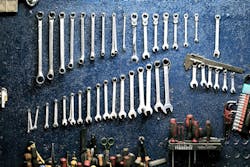- MAHLE purchases technology license from WiTricity
- Wireless charging increases the appeal of electric vehicles
- Strong market potential anticipated
- Focus on charging speed, compact technology, and energy efficiency
“This addition to the MAHLE portfolio provides us with a crucial element for the long-term acceptance and expansion of e-mobility. We believe this technology offers strong market potential. Our solution will enable fast, reliable, and highly efficient charging,” says Dr. Jörg Stratmann, Chairman of the Management Board and CEO of MAHLE.
In recent years, MAHLE has intensified its research in the field of wireless charging. “With the acquisition of licenses for WiTricity’s magnetic resonance technology, we’re now progressing to the concrete development stage. This will involve our expertise in control electronics, software, and thermal management. In the development of our solution, we’re placing particular emphasis on a modular, compact system that can be upgraded by the customer,” says Dr. Otmar Scharrer, Head of Corporate Research and Advanced Engineering at MAHLE.
This means, for example, that the operation of MAHLE’s system will be bidirectional. The parked vehicle will act as buffer storage and will be able to feed its energy back into the network—a great advantage when it comes to making the best use of electricity from renewables. A high level of overall efficiency will also be achieved, because the waste heat from the charging process can be used to preheat the passenger cabin, for instance. Moreover, the magnetic resonance technology licensed by MAHLE from WiTricity offers a further advantage. In contrast to the inductive charging method that is currently available—as found in devices like electric toothbrushes, which need to be positioned carefully on their base—MAHLE’s system is far more robust. MAHLE will continue to build on this advantage ahead of series production development.
About MAHLE MAHLE is a leading international development partner and supplier to the automotive industry as well as a pioneer for the mobility of the future. The group’s product portfolio addresses all the crucial issues relating to the powertrain and air conditioning technology—both for drives with combustion engines and for e-mobility. In 2017, the group generated sales of approximately EUR 12.8 billion with about 78,000 employees and is represented in more than 30 countries with 170 production locations.


